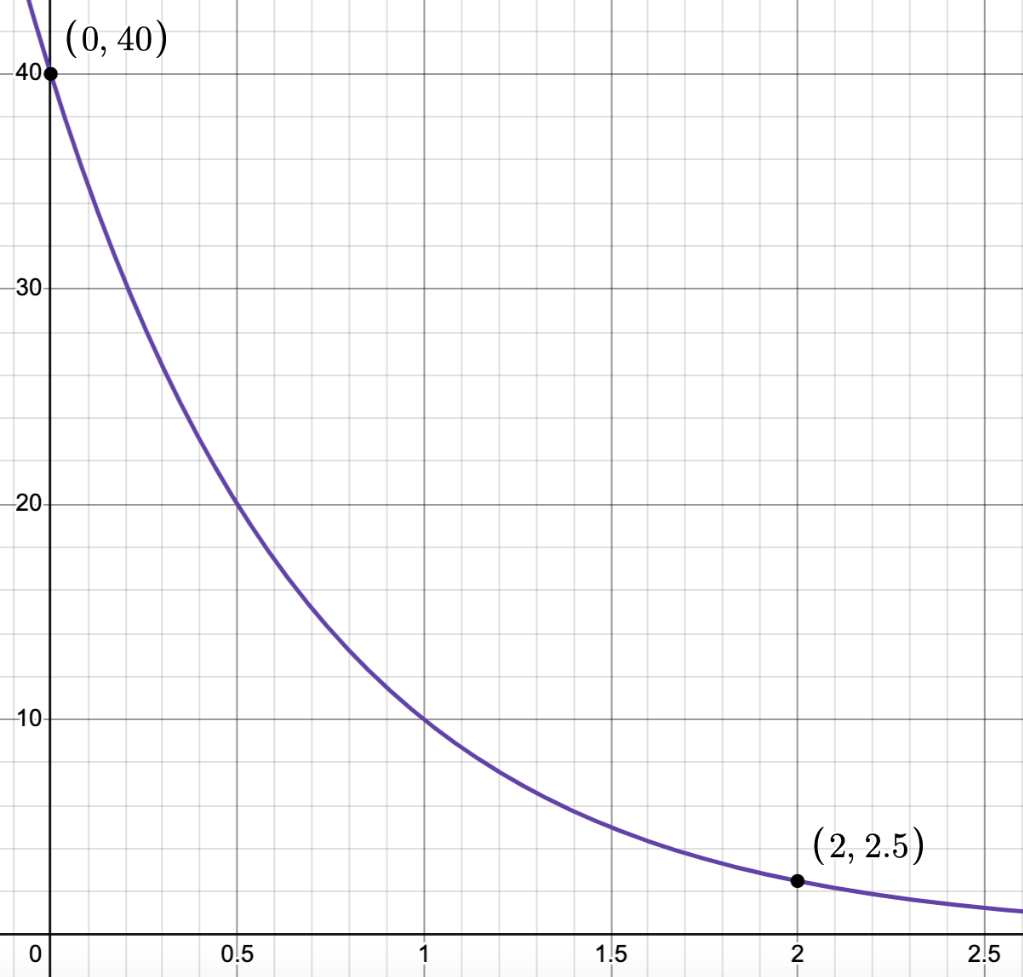What value should replace the variable:
(4^x)^3 = 4^18
x = 6
Solve the following equation:
x^2 = 36
x = 6 or -6
(12 - 15i) + (6 - 9i)
(18 - 24i)
Solve for x
x^2 = -144
x = 12i or - 12i
The population of lizards in a science experiment is modeled by the function.
50(1.07)^t
What is the initial population?
What is the percent change per week?
Initial Population: 50
Percent Change: +7%
Convert to logarithmic form:
7^3 = 343
log_7(343) = 3
Put
root(6)(7^14)
into exponential form.
7^(14/6)
Solve the equation:
root(3)(x+5) = -2
x = -13
8i(7 - 4i)
32 + 56i
Solve for x
-5x^2 + 2 = 17
x = sqrt3 i or -sqrt3 i
Write an exponential model for this scenario:
Amari deposits $6000 in a bank account with 2.3% yearly interest, deposited incrementally. Show the balance after t years have passed.
f(x) = 6000*(1.023)^t
Convert to exponential form:
log(800) = 2.9030
10^2.9030 = 800
5^(3/4)
in radical form
root(4)(5^3)
Solve the equation for x:
4(x-1)^3 = 108
x = 4
(4 + 11i) - (-3 + 6i)
7 + 5i
Solve for x:
4x^2 + 2x + 5 = 0
x = \frac(-2 +- sqrt76 i)(8)
The value of a 3D printer depreciates by 5% each month after its purchase. If it was bought for $1050, what will it sell for after a year and a half (18 months)?
$417.08
Solve for x:
e^(4x) = 50
x = ln(50)/4. or 0.978
What value should replace the variable:
1/3 = 9^x
x = -1/2
Solve the following equation:
sqrt(2x -10) + 2 = 8
x = 23
(6 - 2i)(-4 + 10i)
-4 + 68i
Solve for x:
-x^2 + 7x - 12 = 3
x = \frac(-7 +- sqrt11 i)(2)
The population of rabbits in a forest after t years is given by the function:
f(x) = 40*(3.5)^t
What is the daily growth rate of the population?
3.5^(1/365) = 1.003
1.003
The number of infected cells in a disease control experiment after t hours is given by the function.
c(t) = 500e^(-0.045t)
When will the number of cells fall to 200?
t = 20.36 hours
Use exponent rules to simplify this expression until it can be written without exponents:
(2^3*5^3)/10^4
1/10
Put this radical into simplest form:
sqrt(9/7)
(3sqrt(7))/7
(3 + 2i)(1 - 4i) + 10i
11
Solve for x:
3x^2 - 5x + 6 = 2
x = \frac(5 +- sqrt23 i)(6)
Write the exponential function that would create this graph:

f(x) = 40 *0.25^x
The number of cell phones owned (in millions) is given by the function.
p(t) = 23*(1+0.12)^t
When will the number of cell phones reach 1 billion?
33.28 years